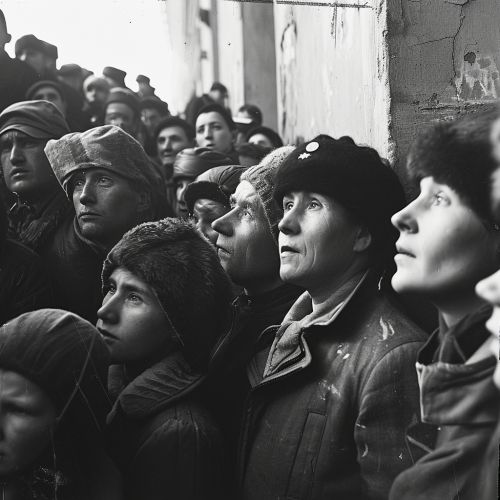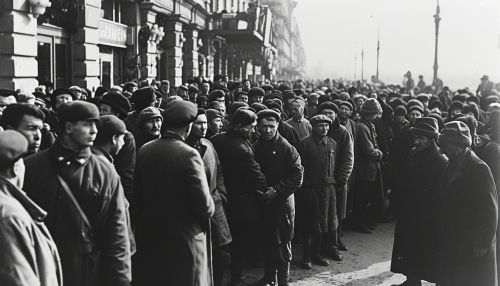Great Purge
Overview
The Great Purge was a series of campaigns of political repression and persecution in the Soviet Union orchestrated by Joseph Stalin from 1936 to 1938. It involved a large-scale purge of the Communist Party and government officials, repression of peasants, Red Army leadership, and the persecution of unaffiliated persons, characterized by widespread police surveillance, suspicion of "saboteurs", imprisonment, and executions.
Historical Context
The Great Purge is also known as the "Great Terror". It reached its peak in the years 1937-1938 but its after-effects continued long after this period. It was a time of extreme political repression in the Soviet Union during which hundreds of thousands of people were executed, including top military leaders, and millions more were sent to forced labor camps.
Causes and Motivations
Stalin's main motivation behind the Great Purge was to consolidate his power. The 1917 Revolution had led to a vast restructuring of society and the economy, and the subsequent Russian Civil War had left the country in a state of instability. Stalin saw any potential opposition or threat to his rule as a danger that needed to be eliminated.
Implementation
The Great Purge was implemented through a series of orders and directives issued by Stalin and his close associates. The NKVD, the Soviet secret police, played a key role in carrying out these orders. The purges began with the expulsion of Leon Trotsky, a prominent leader of the 1917 Revolution, from the Communist Party in 1927, and escalated with the assassination of Sergei Kirov, a popular party leader in Leningrad, in 1934.


Impact
The impact of the Great Purge was far-reaching. It resulted in the execution of many high-ranking officials, military officers, and ordinary citizens. The purges significantly altered the Soviet Union's political landscape, consolidating Stalin's absolute power. The purges also had a profound effect on the Soviet Union's society and culture, causing widespread fear and paranoia.
Legacy
The legacy of the Great Purge is still felt today. It remains a controversial topic in Russia and other former Soviet states. The Great Purge has been the subject of many scholarly studies, and it continues to be a topic of research in the fields of history, political science, and sociology.
